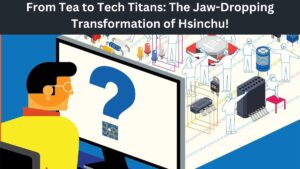
In a groundbreaking revelation, Adobe’s latest report sheds light on the burgeoning embrace of Generative AI, or Gen AI, across the American landscape. Garnered from an extensive survey encompassing 3,000 discerning US consumers, the findings underscore a notable surge in the utilization of this transformative technology. While its predominant usage remains entrenched within personal spheres, an intriguing uptick is witnessed in its incorporation within professional and educational domains, heralding a paradigm shift in societal engagement with AI.
The evolving tapestry of Gen AI within the American fabric is vividly portrayed through Adobe’s comprehensive study. A mosaic of insights emerges, delineating the multifaceted applications of this cutting-edge technology. Primarily harnessed for personal endeavors, such as creative pursuits, entertainment, and lifestyle enhancements, Generative AI permeates various facets of daily life with its innovative capabilities. Whether in the form of AI-generated artworks, music compositions, or personalized content curation, individuals are increasingly embracing Gen AI as a conduit for unleashing their creative expression and augmenting their digital experiences.
However, the allure of Generative AI transcends the confines of personal amusement, venturing into the realms of professional endeavors and educational pursuits. Adobe’s report illuminates this progressive trend, showcasing a discernible inclination among businesses and educational institutions to harness the power of Gen AI for diverse applications. In the professional landscape, organizations are leveraging Generative AI to streamline workflows, optimize resource allocation, and enhance product development processes. From automated content generation and design prototyping to data analysis and predictive modeling, Gen AI emerges as a catalyst for driving efficiency and innovation across industries.
Simultaneously, the educational arena witnesses a burgeoning integration of Generative AI into pedagogical practices, catering to a burgeoning demand for innovative learning methodologies. Educators are harnessing the potential of Gen AI to personalize learning experiences, facilitate interactive teaching modules, and empower students with hands-on engagement in AI-driven projects. By fostering a symbiotic relationship between human creativity and machine intelligence, educational institutions are poised to nurture a generation of digital natives adept at harnessing the transformative potential of AI.
Behind the meteoric rise of Generative AI lies a confluence of factors driving its adoption among Americans. Chief among these catalysts is the evolving landscape of AI accessibility and democratization, facilitated by advancements in AI technology and the proliferation of user-friendly AI platforms. With tools and resources becoming increasingly accessible to the masses, individuals and organizations alike are empowered to explore the boundless possibilities offered by Generative AI, transcending traditional barriers to entry.
Moreover, the pervasive influence of digital culture and the proliferation of online platforms play a pivotal role in fueling the uptake of Gen AI among Americans. In an era characterized by the democratization of content creation and consumption, individuals are primed to embrace technologies that amplify their creative endeavors and cater to their evolving digital lifestyles. Generative AI emerges as a natural ally in this landscape, offering a seamless blend of human ingenuity and machine intelligence to augment digital experiences and unlock new realms of creativity.
However, amidst the burgeoning enthusiasm surrounding Generative AI, pertinent considerations regarding ethics, privacy, and socio-economic implications loom large. As AI technologies continue to evolve at a rapid pace, it becomes imperative to ensure responsible deployment and governance frameworks that safeguard against potential risks and mitigate unintended consequences. Adobe’s report underscores the importance of fostering a nuanced understanding of the ethical dimensions surrounding Gen AI and advocating for ethical AI practices to ensure its responsible and equitable integration into society.
In conclusion, Adobe’s report unveils a compelling narrative of the growing adoption of Generative AI among Americans, signaling a transformative shift in societal engagement with AI technology. From its roots in personal amusement to its burgeoning applications in professional endeavors and educational pursuits, Gen AI emerges as a catalyst for innovation, creativity, and transformative change. As individuals and organizations continue to embrace the possibilities offered by Generative AI, it is imperative to navigate its evolution with a keen awareness of ethical considerations and a commitment to fostering responsible AI practices. In doing so, we can harness the full potential of Generative AI to shape a future where human creativity flourishes in harmony with machine intelligence.






